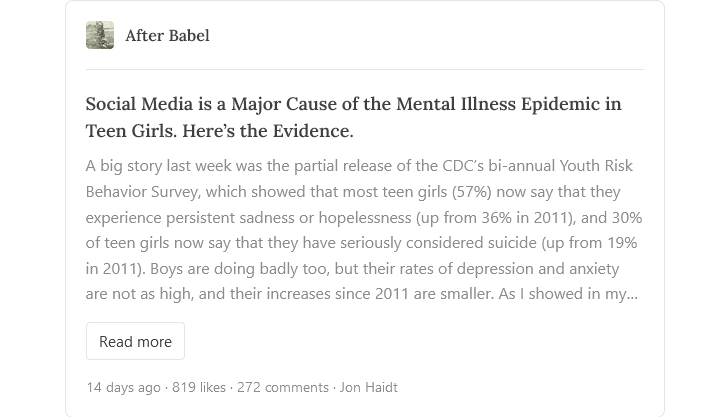Chris Bray notices what we’re not supposed to be noticing:

French women accused of collaborating with the Germans are paraded through the streets by members of the French Resistance after liberation, Summer 1944.
Original photo from the German Federal Archive via Wikimedia Commons.
Almost two years ago, with a moral panic still consuming the world and the narrative shift far in the future, the journalist Laura Dodsworth published a tough, concise, well-argued book describing the very deliberate efforts of the British government to create a widespread state of fear — that’s the title of the book, by the way — that would paralyze ordinary people and compel them to comply with harsh and repressive public health measures. You’ll be shocked to hear that she was attacked and vilified; one prominent review called State of Fear “an outrageously dumb book selling conspiracy hooey”.
Then, in 2023, Isabel Oakeshott gave us the halfwit government minister Matt Hancock’s pathetic whatsapp messages — in which he clumsily babbles about creating a state of fear to get the public to obey the government — and the rest is history. Laura Dodsworth was demeaned and defamed, and then she was vindicated.
Moral panics always fade. Manufactured crises always crack and collapse. Propaganda always has a “sell by” date, and then it turns rancid. The effect is comparable to what Warren Buffett says about a recession: When the tide goes out, you can see who’s been swimming naked.
This is where we are with the January 6 narrative, as the most horrible attack on Our Democracy™ since the Civil War collides with the image of a dork in Viking horns calmly wandering the hallways with a police escort. The political class is taking it well.
This image speaks:
That’s violent insurrectionist Jacob Chansley walking calmly through a crowd of police officers who aren’t making the slightest effort to stop him. That’s what happened. Other things also happened, and some of them involved violence and broken windows, but this is the act in the center ring of the circus. Now, the lawyer who represented this violent insurrectionist says plainly that Jacob Chansley was the victim of Brady violations, and other January 6 defendants are racing to raise the same point in court. The tide is going out.
[…]
And it seems possible to me, or rather it seems likely to me, that the French Resistance effect is beginning to appear: After the Nazis leave France, everyone says they were always with the Resistance. As narratives shift, and the moral meaning of an act during a moral panic is recoded, people may begin to remember their choices differently. We’ll see.








